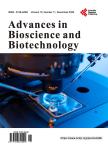Evaluation of Quality of Life Related to I-131 Therapy in Patients with Well-Differentiated Thyroid Cancer and Emphasis in Salivary Morbidity: A Follow up Study after Treatment
作者机构:Department of Nuclear MedicineBarretos Cancer HospitalBarretosBrazil Department of Nuclear MedicineMedical SchoolSao Paulo State University(UNESP)BotucatuBrazil Department of PediatricsBarretos Cancer HospitalBarretosBrazil Department of Oncological SurgeryBarretos Cancer HospitalBarretosBrazil
出 版 物:《Advances in Bioscience and Biotechnology》 (生命科学与技术进展(英文))
年 卷 期:2014年第5卷第5期
页 面:409-417页
学科分类:1002[医学-临床医学] 100214[医学-肿瘤学] 10[医学]
主 题:Scintigraphy of the Salivary Glands Thyroid Cancer Iodine Radionuclide
摘 要:Goal: To evaluate the impact of iodine-131 therapy received during childhood and adolescence and correlate it with the quality of life in these patients. Methods: We studied 19 patients diagnosed with cancer in childhood or adolescence who underwent thyroidectomy and supplemental therapy with I-131. We also recruited a control group of healthy subjects with the same demographic parameters. All patients were subjected to a scintigraphy examination of the salivary glands, and were also asked to complete a questionnaire in order to assess their overall quality of life. In addition, a more specific questionnaire for patients with head and neck cancer was also given to all study participants. Results: The quantitative and qualitative analyses of the salivary glands showed functional deficits with greater involvement of the parotid gland for volume, concentration and excretion. The right submandibular gland showed significant changes for volume in the patient group. The questionnaires made it possible to observe significant differences between the patient and control groups for symptoms such as thick saliva, dry mouth and speech problems. Conclusion: In spite of being very effective and widely used, iodine radionuclide therapy is correlated with a lower quality of life in young people.



